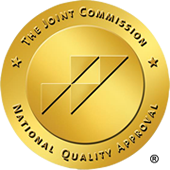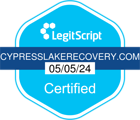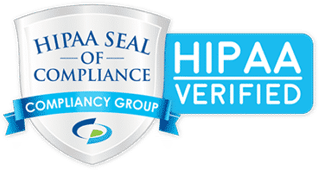Meth Withdrawal Timeline
Meth withdrawal doesn’t follow the same path for everyone, but there are common stages most people go through. Symptoms usually begin quickly after stopping use, often within the first day.
Over the next few weeks, the body and brain slowly adjust as cravings, mood changes, and fatigue come and go. At Cypress Lake Recovery, we provide medical care and emotional support throughout each stage of meth withdrawal.
Is Addiction Impacting Your Life?
Take The First Step To True Healing Today!
The Timeline of Meth Withdrawal
During the first 24 hours of meth detox, a person may feel extremely tired and hungry. Depression and anxiety can begin suddenly and feel overwhelming. Cravings for meth are usually strong during this early phase.
This is often the hardest period in the meth withdrawal timeline. Mood swings, panic, and deep fatigue can take over. Some people sleep for long hours, while others can’t rest at all.
By the end of the first week, physical symptoms like headaches and body aches may fade. Emotional struggles like sadness, anger, or hopelessness often get stronger. Cravings may come and go without warning.
During this phase, sleep may improve but mental health symptoms often linger. Feeling anxious, unmotivated, or having vivid drug-related dreams is common. The brain is still recovering from addiction, and it can take a while before things feel normal again.
After five weeks, some people start to feel more stable. But full recovery from meth addiction takes longer. Lingering feelings of depression, cravings, and focus problems can persist. Having regular support makes it easier to stay focused and avoid setbacks.
How Meth Affects the Body
Meth can also put serious stress on the heart, increasing the risk of stroke and heart attack. It can speed up heartbeat, raise blood pressure, and put strain on blood vessels. Long-term use may lead to severe dental problems, known as “meth mouth.”
People often lose weight quickly because meth suppresses appetite and disrupts sleep. Perhaps most disturbing, meth can stay in the body for several days. Meth can often be found in urine tests for about four days after your last use. For long-term users, meth may stay in the body for a longer period. Meth can show up in a hair test for as long as 90 days after use. While the high fades quickly, the harm it causes can stick around for a long time.
Contact Our Admissions Team Today
What Affects How You Go Through Withdrawal
Each of the following can influence how intense or long withdrawal can feel:
- How Long You Used Meth: Longer use usually leads to more severe withdrawal symptoms and a longer recovery process.
- How Much Meth You Used: Higher doses often mean your brain and body take longer to heal.
- How Often You Used It: Daily use builds more tolerance, which can make withdrawal symptoms stronger.
- Your Physical Health: If your body is already weak or immunocompromised, withdrawal may hit harder and take longer to manage.
- Your Mental Health: People with anxiety disorders, depression, or who are dealing with trauma may struggle more during withdrawal.
- Your Environment: A safe, calm space to go through withdrawal makes it easier to cope. Stressful or triggering settings can make symptoms worse.
- Support Systems: Having professional help and emotional support can ease the process and reduce the risk of relapse.

Testimonials
![]()
![]()
![]()
![]()
![]()
Regina
I am so happy that I chose Cypress to begin my recovery. I have suffered for years from depression, anxiety, panic disorder, and PTSD. The programs that are offered here at Cypress have been truly phenomenal in helping me recover. I also appreciated the professional staff that are here on duty 24/7, which helps create a safe environment. Cypress Lake Recovery uses effective “one on one” methods that meet each person’s individual needs because they evaluate and have a better understanding of your personal traumatic experiences. Thanks Sabino, I am truly grateful to you and the Cypress family.
![]()
![]()
![]()
![]()
![]()
J.A.
A beautiful facility! Staff sets the tone and kindness that residents easily follow. Thank you, Cypress Lake Recovery!
![]()
![]()
![]()
![]()
![]()
Pamela
The program at Cypress Lake Recovery works! I emerged from an accumulation of unrecognized emotions, issues of trust, and unresolved grief and loss. 35-days of effective integration of customized quality therapy reconnected my mind, body, spirit, and I am worth it! I had masked emotions and hurtful events for decades with alcohol. At Cypress Lake Recovery I safely focused deep within to unleash harmful secrets and self-degradation. Tools of recovery were practiced, not just presented. Integrative therapies were tailored to my circumstances, thus were effective. This residential program is like no other. For me, Cypress Lake Recovery delivered what was professed. I am forever grateful for this gift of healing.
![]()
![]()
![]()
![]()
![]()
Mike
Life changing experience. Wonderful staff. Wonderful program. Thanks for everything!
![]()
![]()
![]()
![]()
![]()
Darcy
It was great to begin my recovery in a group environment with so many knowledgeable nurses, therapists, BHT’s, and others around for support. The equine therapy, challenge course, family week, and daily therapies all work together seamlessly, allowing me to leave Sabino as a healthier and stronger person!
The Meth Withdrawal Process
This is the first phase after stopping meth use. People often feel extreme fatigue, hunger, and deep sadness or anxiety. Many sleep for long hours or struggle with intense cravings.
Depression, anxiety, and mood swings usually grow stronger during this stage. Many experience sudden waves of anger or despair they can’t explain. Drug cravings may still come and go unexpectedly.
Physical symptoms like headaches, muscle pain, or exhaustion may continue for several weeks. Sleep patterns may still be off, but usually start to improve. Appetite slowly returns to normal.
The brain needs time to rebalance after meth use. It may be hard to concentrate, feel motivated, or manage emotions. This stage may continue for several weeks or stretch into months.
Even after the worst symptoms fade, recovery continues. Some people still occasionally feel cravings, sadness, or anxiety. Staying on track requires consistent help from others and sticking to good habits.
Tips for Enduring Meth Withdrawal

- Stay Hydrated: Water helps clear out harmful substances from the body, and can ease headaches and tiredness.
- Eat Small, Healthy Meals: Even if you have no appetite, food gives your brain and body fuel to heal.
- Rest Without Oversleeping: Sleep helps you recover, but too much can lead to more depression or disconnection.
- Ask for Help: Talk to a friend, family member, or therapist. It’s easier to go through the withdrawal process if you’re not alone.
- Maintain a Routine: Having structure gives your mind and body something to hold onto during withdrawal.
- Avoid Triggers: Avoid people, places, or situations that might tempt you to use meth again.
- Be Kind to Yourself: Recovery is not perfect. You are allowed to struggle and still keep going.
At Cypress Lake Recovery, we support you with care and no judgment. You’re not weak for needing help — you’re human, and you deserve healing.
Treatments for Meth Withdrawal
Talking with a mental health professional can help with understanding triggers and learning healthier ways to cope. Group therapy and peer support can remind you that you’re not alone in what you’re feeling.
At a treatment center, it’s possible to also get good food, rest, and structure to help the brain and body heal. For some people, medical detox is the first and most important step. For others, a full treatment plan includes inpatient or outpatient rehab (depending on need).
The Value of Medically Assisted Detox
Medically assisted detox helps to ease these symptoms while keeping you safe and stable. Trained medical staff monitor vital signs, manage symptoms, and respond quickly if complications arise. The person may receive medications to reduce distress and support the body throughout the process.
This kind of care can not only protect physical health, but give the person a better chance at lasting recovery. Medically assisted detox can also help reduce the risk of relapse during the early stages of withdrawal. People are frequently tempted to relapse back into use early in the process, seeking relief from withdrawal symptoms.

Nationally Recognized & Accredited






Get Support for Meth Addiction at Cypress Lake Recovery
What sets us apart is our personalized, trauma-informed approach. We offer dual diagnosis care to both addiction and co-occurring mental health issues. Our peaceful East Texas setting helps you feel grounded, while our compassionate team creates a plan built just for you. Our programs combine medical support, emotional healing, and real-life skills that help you build a future, not just survive detox.
If you’re exhausted, afraid, or don’t know what to do next, we’re here for you. Reach out to Cypress Lake Recovery today. Your recovery is possible, and it starts with the brave choice to ask for help.



